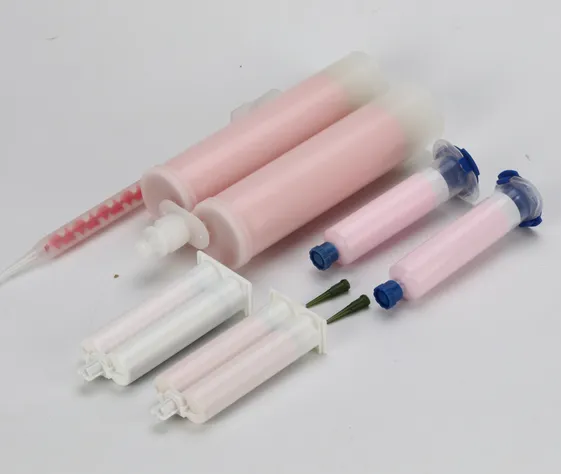
The solution to this problem is to fill the heat-conducting material between the radiator and the heat source. The air between the gaps allows the heat source and the radiator to be in close contact, reducing the contact thermal resistance and improving the heat transfer efficiency. The thermal silicone gel in the heat-conducting material Is an efficient and suitable for automated production methods of thermal conductivity material, so what is heat dissipation silicone gel?
Thermal silicone gel is a kind of gel that uses silicone resin as the matrix, adds heat-conducting fillers and bonding materials in a certain proportion, and is processed through a special process. In the industry, it is also called thermal silicone gel mud and thermally conductive mud. It has high thermal conductivity, low thermal resistance and good thixotropy. It has become an ideal material for applications with large gap tolerances. It is filled between the electronic components that need to be cooled and the radiator/shell to make close contact and reduce Thermal resistance quickly and effectively reduces the temperature of electronic components, thereby prolonging the service life of electronic components and improving their reliability.

 English
English
 usheenthermal
usheenthermal



